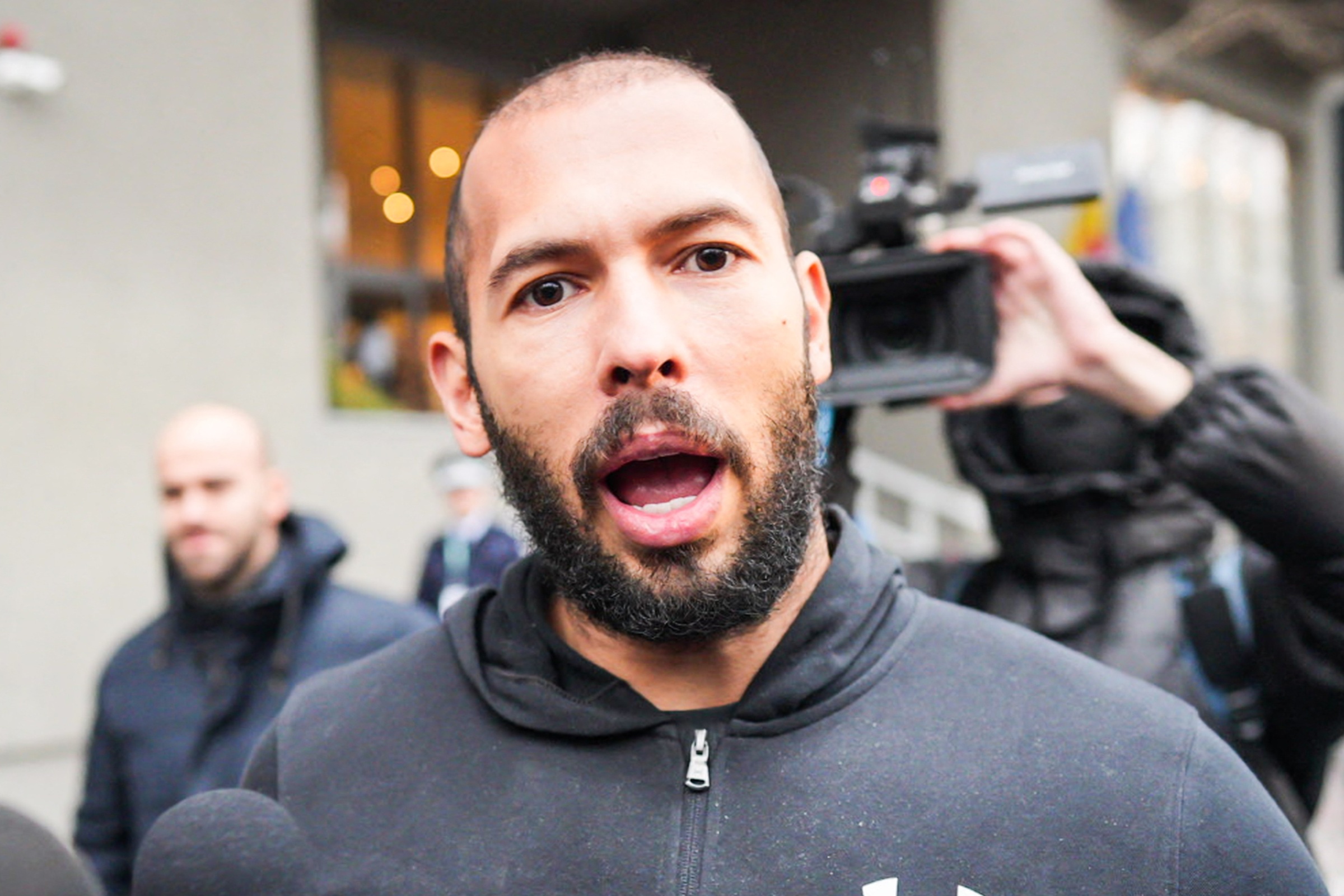Andrew Tate: A Controversial Figure's Perspective On Racism
Andrew Tate, a prominent social media personality and entrepreneur, has been a polarizing figure in discussions surrounding contemporary social issues, including racism. His views, often provocative and contentious, have sparked debate among followers and critics alike. As a former kickboxing champion and reality television star, Tate's opinions carry weight in certain circles, and his statements on racism are no exception. In a world where racial tensions are prevalent, understanding his perspective can offer insights into the complexities of modern discourse on race. This article aims to explore Andrew Tate's views on racism and how they resonate with or diverge from mainstream thought.
In examining Andrew Tate on racism, it is essential to consider his background and experiences that shape his opinions. His controversial statements often attract attention, leading many to question the motivations behind his beliefs. As we dive deeper into his views, we will analyze the implications of his rhetoric and its impact on society.
Ultimately, the conversation surrounding racism is multifaceted, and Andrew Tate's perspective adds another layer to an already complex dialogue. By exploring his thoughts and the reactions they provoke, we can better understand the broader societal implications of his stance on this critical issue.
Who is Andrew Tate?
Andrew Tate is a British-American businessman, social media influencer, and former professional kickboxer. He gained fame after appearing on the reality show "Big Brother UK" and has since built a controversial online presence. Known for his lavish lifestyle and outspoken views, Tate's opinions often spark intense discussions on various topics, including race and social justice.
What is Andrew Tate's Background?
Andrew Tate was born on December 1, 1987, in Washington, D.C., to an American father and a British mother. He was raised in both the United States and the United Kingdom, which has influenced his worldview. As an accomplished athlete, he became a four-time world champion in kickboxing, which laid the foundation for his later ventures in business and social media.
| Personal Details | Information |
|---|---|
| Name | Emory Andrew Tate III |
| Date of Birth | December 1, 1987 |
| Nationality | British-American |
| Profession | Businessman, Influencer, Former Kickboxer |
| Notable Appearances | Big Brother UK |
What Does Andrew Tate Say About Racism?
Andrew Tate's statements on racism are often characterized by a combination of controversial opinions and a dismissive attitude towards the concept of systemic racism. He has expressed a belief that individuals should be judged based on their actions rather than their race. While this perspective resonates with some, it has also drawn significant criticism for oversimplifying the experiences of marginalized communities. In various social media posts, Tate has claimed that discussions about race can be divisive and counterproductive. He argues that the focus should be on individual responsibility and meritocracy, rather than race-based narratives.
How Does Andrew Tate's Perspective Compare to Mainstream Views on Racism?
The mainstream discourse on racism often emphasizes the importance of acknowledging systemic inequalities and the impact of historical injustices. Advocates for social justice argue that racism is deeply embedded in societal structures, leading to disparities in wealth, education, and opportunity among different racial groups. In contrast, Andrew Tate's approach tends to downplay these systemic issues, advocating for a more individualistic perspective.
What Are the Implications of Andrew Tate's Views on Racism?
The implications of Andrew Tate's views on racism are significant, particularly given his large following on social media platforms. Critics argue that his rhetoric can perpetuate harmful stereotypes and discourage meaningful conversations about race. By framing discussions around race as divisive, Tate risks invalidating the lived experiences of individuals who face discrimination based on their racial identity. This dismissal can contribute to a culture of silence around important social issues, hindering progress toward equity and understanding.
How Do Followers and Critics Respond to Andrew Tate on Racism?
Responses to Andrew Tate's views on racism are mixed, with a polarized audience reacting to his statements. Some followers appreciate his bluntness and believe that his perspective encourages personal accountability. They argue that his focus on individual merit can empower people to overcome obstacles regardless of their background. Conversely, critics contend that his views are dismissive of the systemic barriers that many individuals face and can undermine efforts toward achieving social justice.
What Can Be Learned from Andrew Tate's Views on Racism?
While Andrew Tate's perspective on racism may not align with mainstream thought, it presents an opportunity for critical reflection. Engaging with differing viewpoints can help individuals sharpen their arguments and better understand the complexities of racial issues. It is essential to analyze the impact of rhetoric on societal attitudes and to foster discussions that promote empathy and understanding.
What Are Some Alternative Perspectives on Racism?
To gain a well-rounded understanding of racism, it is crucial to explore alternative perspectives that challenge Andrew Tate's views. Here are a few key ideas from advocates for racial justice:
- Education and Awareness: Understanding the historical context of racism is vital for addressing its present-day manifestations.
- Systemic Change: Advocates emphasize the need for policy changes to dismantle systemic inequalities.
- Intersectionality: Recognizing the interconnectedness of various forms of oppression can lead to more inclusive discussions.
Conclusion: Navigating the Complexities of Racism
In conclusion, Andrew Tate's views on racism serve as a touchpoint for broader conversations about race, individualism, and systemic inequality. While his approach may resonate with some, it is crucial to engage with diverse perspectives to foster a deeper understanding of the complexities involved. Ultimately, conversations about racism should strive for inclusivity, empathy, and a commitment to social justice.
Unveiling The Mystery: Anthony Red Hot Chili Peppers Girlfriend
Unraveling The Mystery Of Patrick Dempsey's Height
Jayson Tatum: The Rising Star Of Basketball


